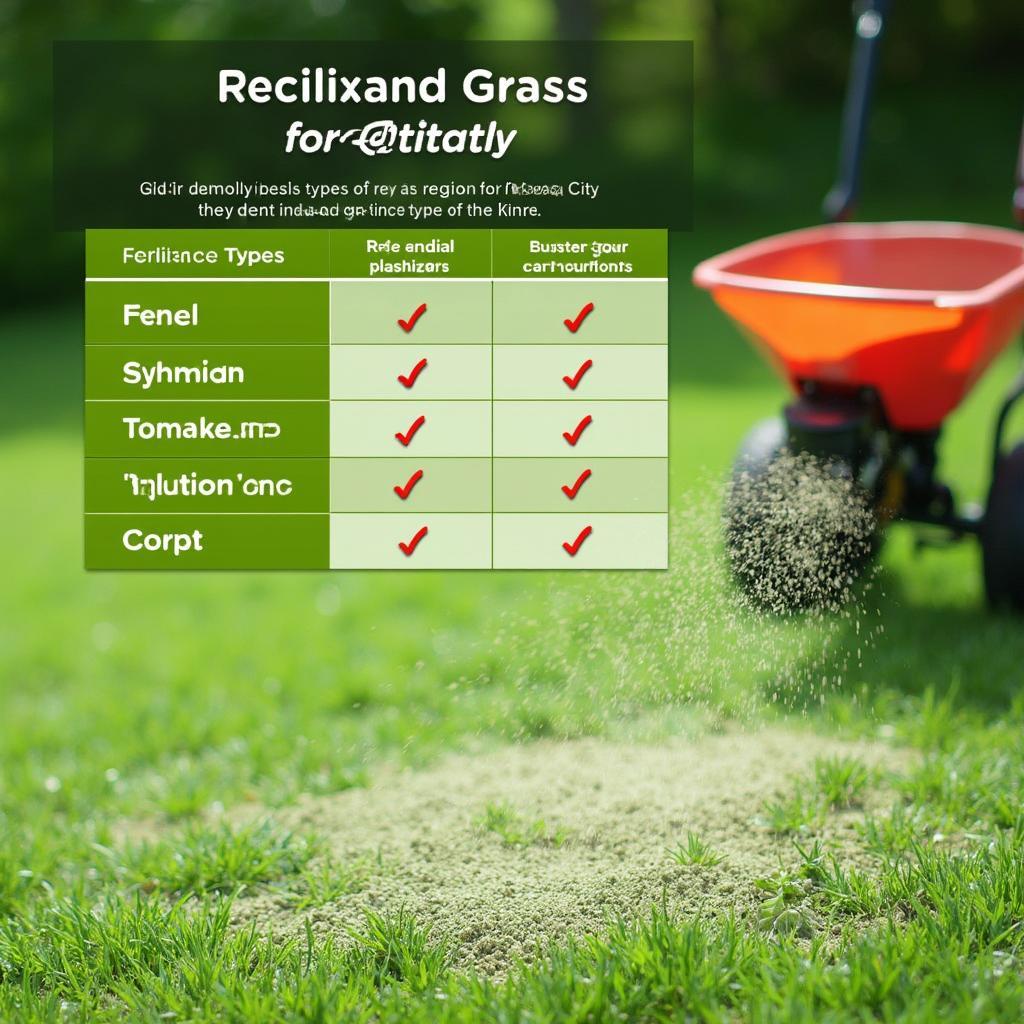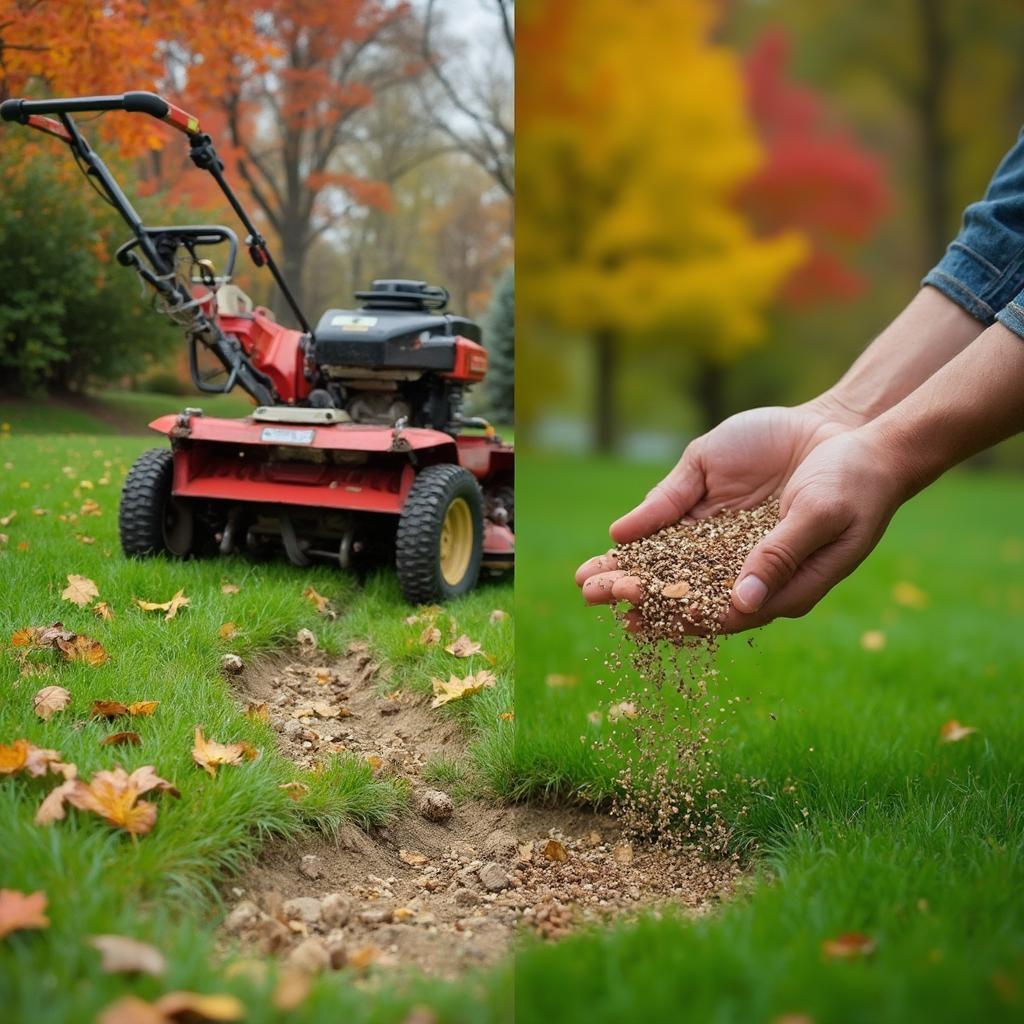Your cart is currently empty!

Kansas City Lawn Care Tips for a Lush Green Yard
Maintaining a vibrant, healthy lawn in Kansas City requires specific know-how due to the region’s unique climate and soil conditions. This guide provides essential Kansas City Lawn Care Tips to help you achieve that perfect green space, whether you’re a seasoned gardener or just starting out.
Understanding Your Kansas City Lawn
Kansas City experiences a transitional climate with hot summers and cold winters, impacting lawn care strategies. The soil type is primarily clay, requiring specific amendments for optimal growth. Knowing your grass type is the first step to success. Common varieties in Kansas City include tall fescue, Kentucky bluegrass, and zoysiagrass. Each type has different needs regarding watering, fertilizing, and mowing.
Choosing the Right Grass Seed
Selecting the right grass seed is crucial. Tall fescue is a popular choice for its heat and drought tolerance, while Kentucky bluegrass thrives in cooler temperatures. Zoysiagrass offers a dense, weed-resistant lawn but requires more sunlight. Consider your yard’s sun exposure and soil conditions before making a decision.
Watering Wisely
Watering deeply and infrequently encourages deep root growth, making your lawn more resilient to drought. Water early in the morning to minimize evaporation and fungal diseases. Avoid overwatering, which can lead to root rot and other problems.
Fertilizing for Success
Fertilizing your Kansas City lawn at the right time and with the correct nutrients is essential for healthy growth. Soil testing can determine nutrient deficiencies and guide your fertilization plan. Apply fertilizer in the fall and spring for optimal results. Slow-release fertilizers provide a consistent supply of nutrients over time.
 Properly Fertilizing Your Kansas City Lawn
Properly Fertilizing Your Kansas City Lawn
Mowing Techniques for a Healthy Lawn
Proper mowing practices significantly contribute to lawn health. Avoid cutting more than one-third of the grass blade at a time. Keep your mower blades sharp to prevent tearing the grass, making it susceptible to diseases. Mulching mowers finely chop grass clippings, returning valuable nutrients to the soil.
Dealing with Weeds and Pests
Weeds and pests can quickly take over a lawn if left unchecked. Identify the specific weeds and pests in your yard to determine the most effective treatment. Pre-emergent herbicides prevent weed seeds from germinating, while post-emergent herbicides target existing weeds. Natural pest control methods, such as beneficial insects, can help minimize the use of chemical pesticides.
Aerating and Overseeding
Aerating your lawn improves soil compaction and allows for better water and nutrient absorption. Overseeding helps thicken the lawn and fill in bare patches. Fall is the ideal time for both aeration and overseeding in Kansas City.
“A healthy lawn starts with healthy soil,” says renowned Kansas City landscaper, Robert Green. “Regular aeration and soil testing are key to long-term success.”
 Aerating and Overseeding Your Kansas City Lawn in the Fall
Aerating and Overseeding Your Kansas City Lawn in the Fall
Seasonal Lawn Care in Kansas City
Kansas City’s distinct seasons require tailored lawn care approaches. In spring, focus on fertilization, weed control, and overseeding. During summer, water deeply and infrequently and raise your mower height to help the grass withstand heat stress. In fall, aerate, overseed, and apply a winterizer fertilizer. In winter, avoid heavy traffic on frozen grass to prevent damage.
“Don’t neglect your lawn in the winter,” advises landscape architect, Sarah Miller. “Protecting it from harsh conditions will ensure a healthy start in the spring.”
Conclusion
Achieving a lush, green lawn in Kansas City requires understanding the local climate, soil conditions, and proper lawn care practices. By following these Kansas City lawn care tips, you can create a beautiful and healthy outdoor space you can enjoy year-round.
FAQs
- What type of grass is best for Kansas City?
- When should I fertilize my lawn in Kansas City?
- How often should I water my lawn in Kansas City?
- What are common lawn pests in Kansas City?
- How can I prevent weeds in my Kansas City lawn?
- When should I aerate and overseed my lawn?
- What is the best way to prepare my lawn for winter?
Need assistance with your car diagnostics or have other car-related questions? Contact us via WhatsApp: +1(641)206-8880, Email: [email protected], or visit us at 456 Pine Avenue, Toronto, ON M5V 2J4, Canada. Our customer service team is available 24/7.

Leave a Reply